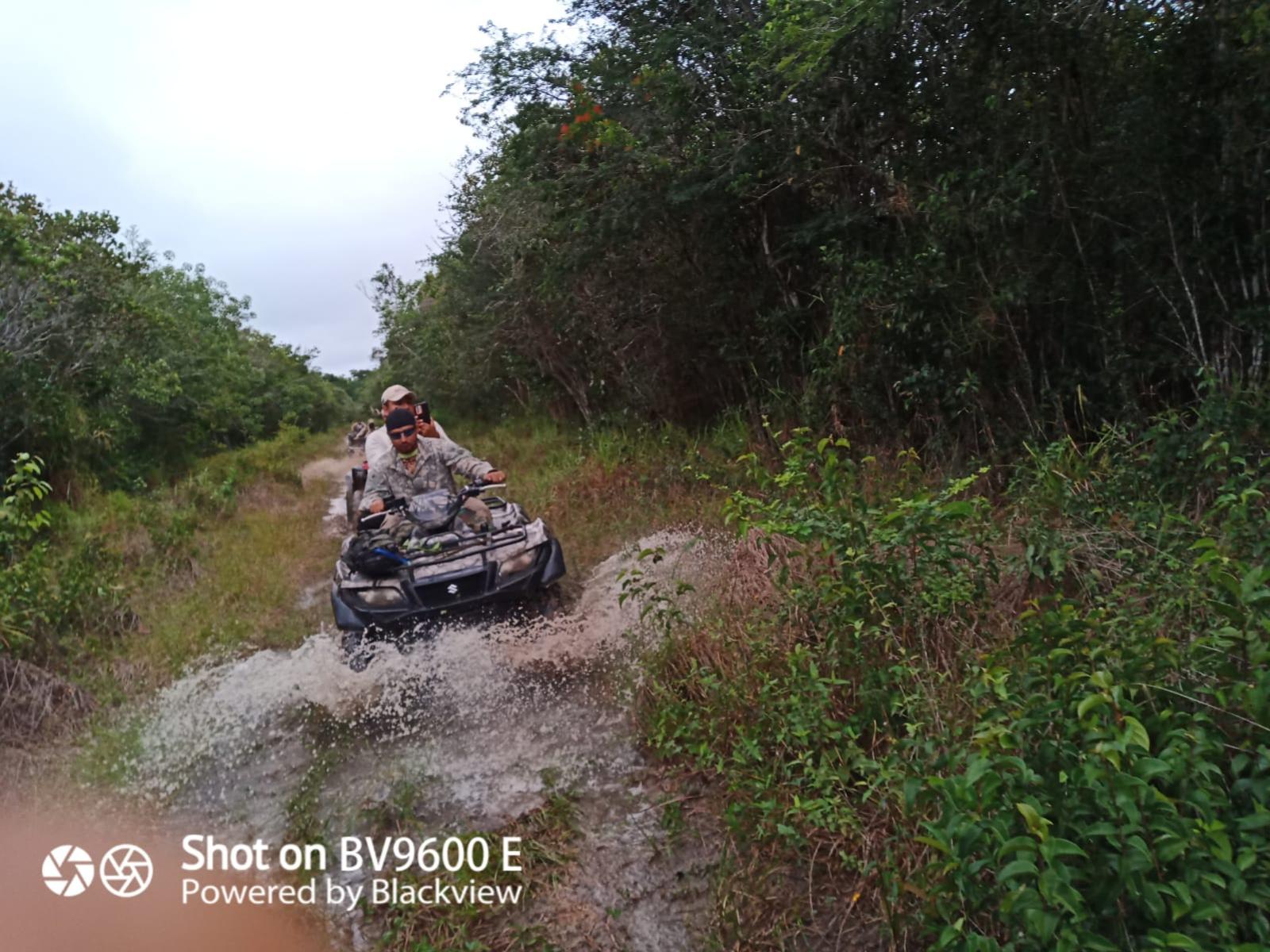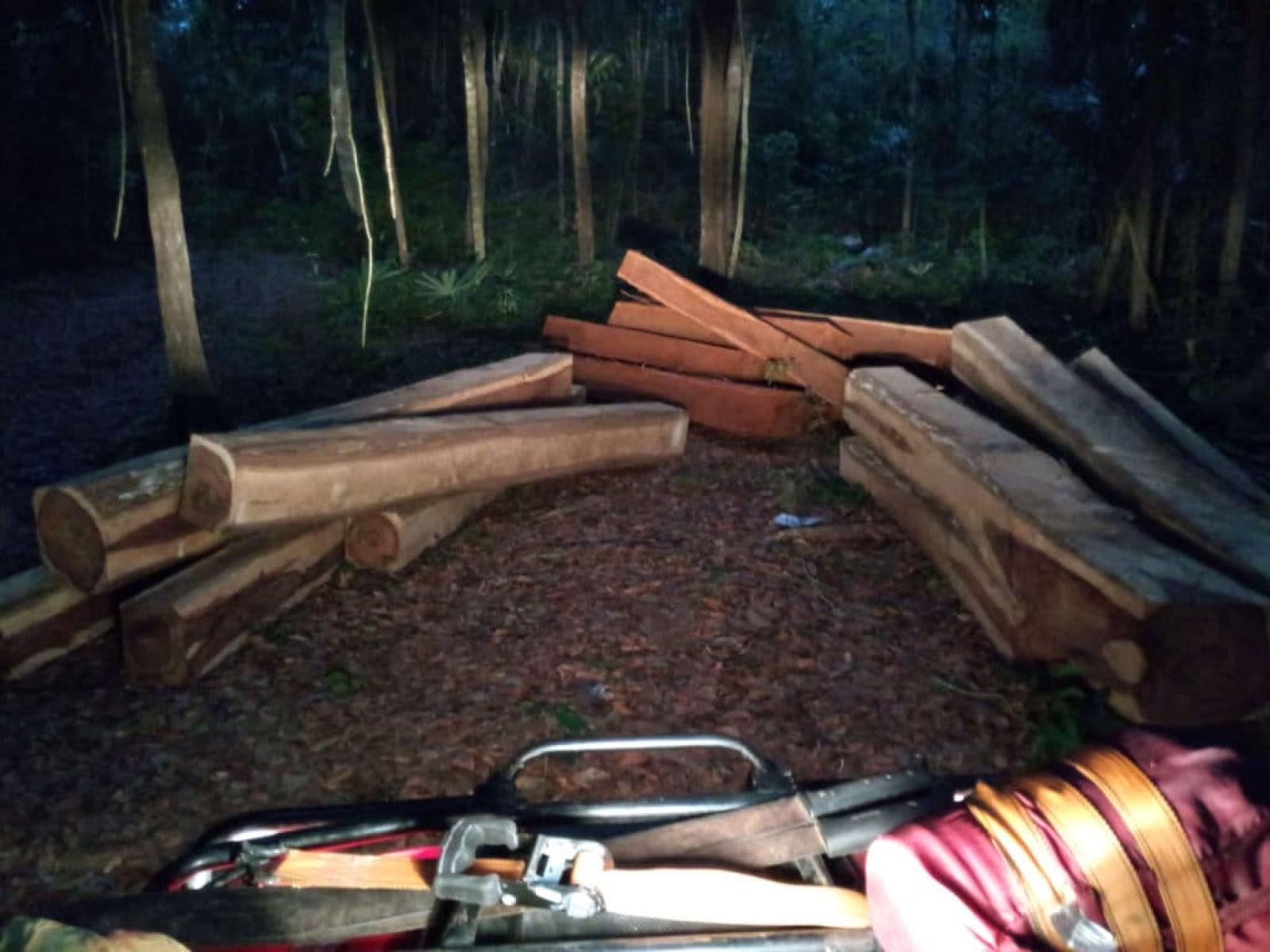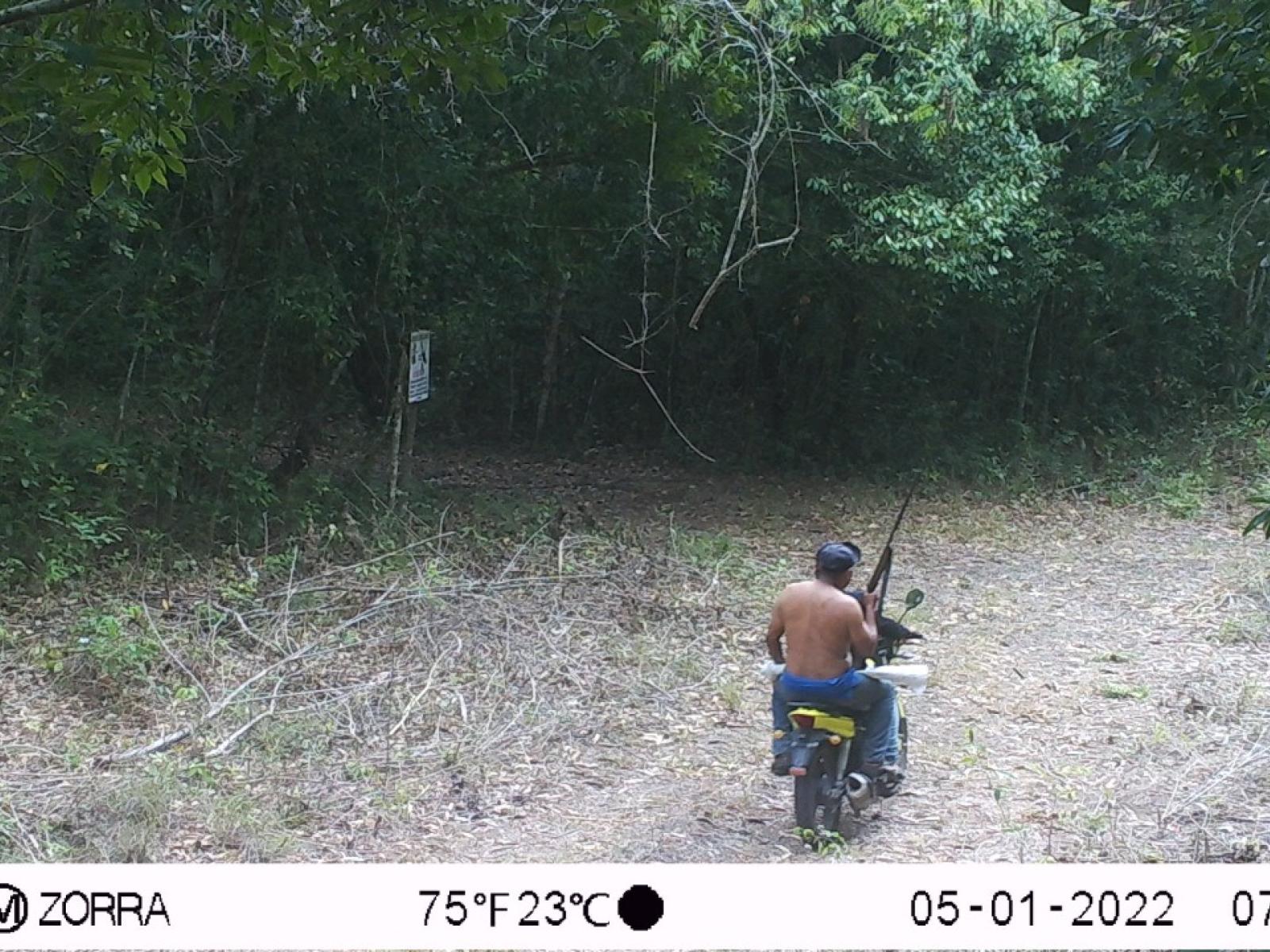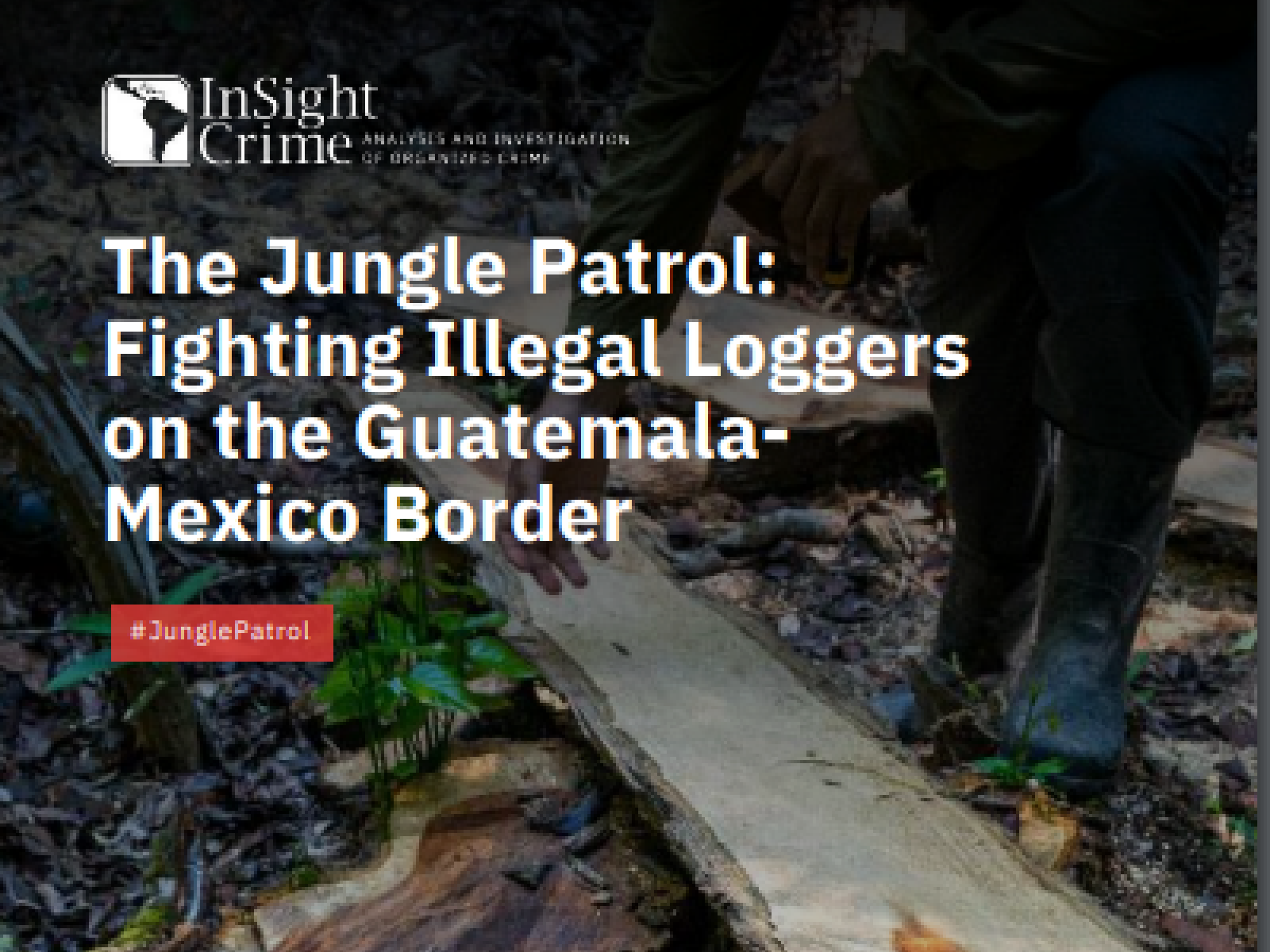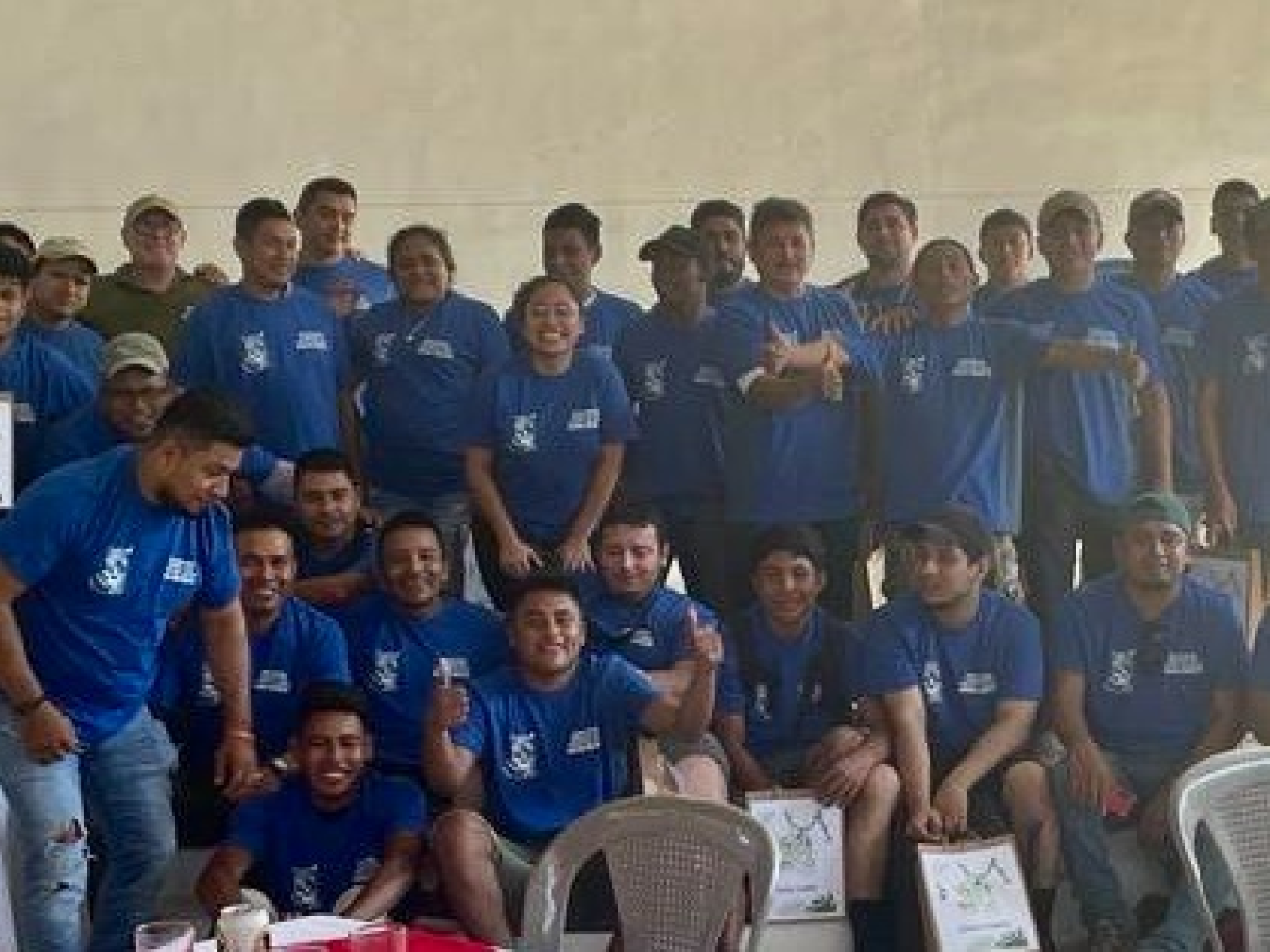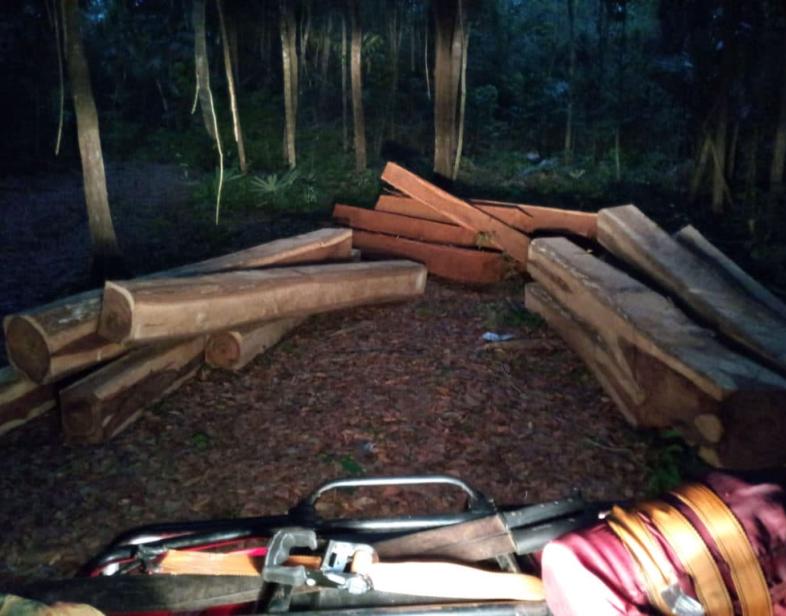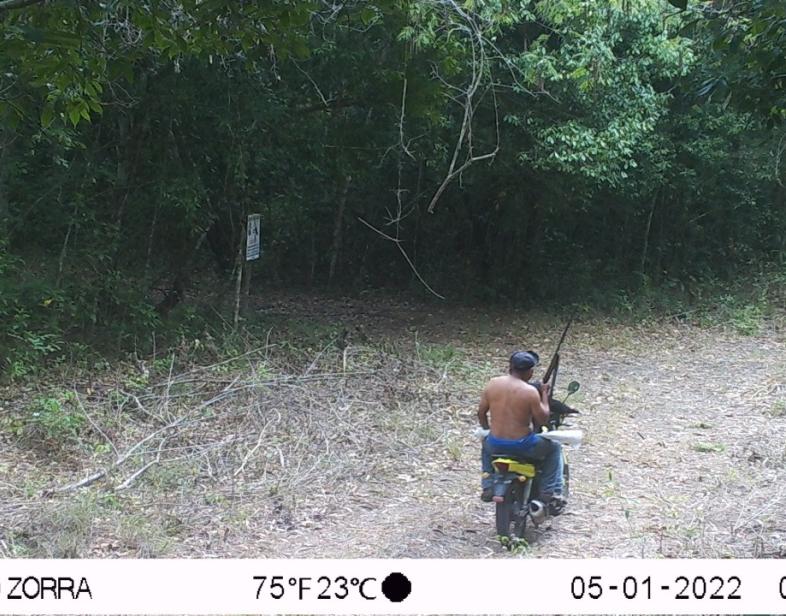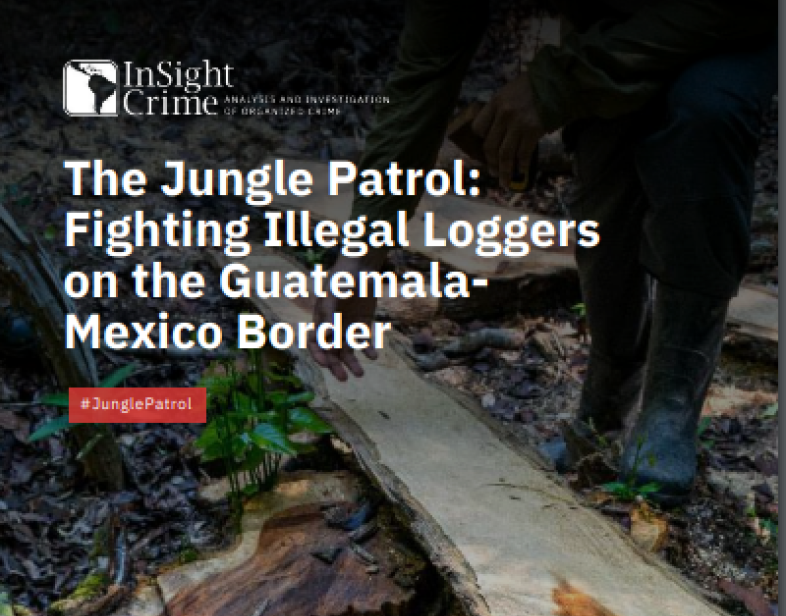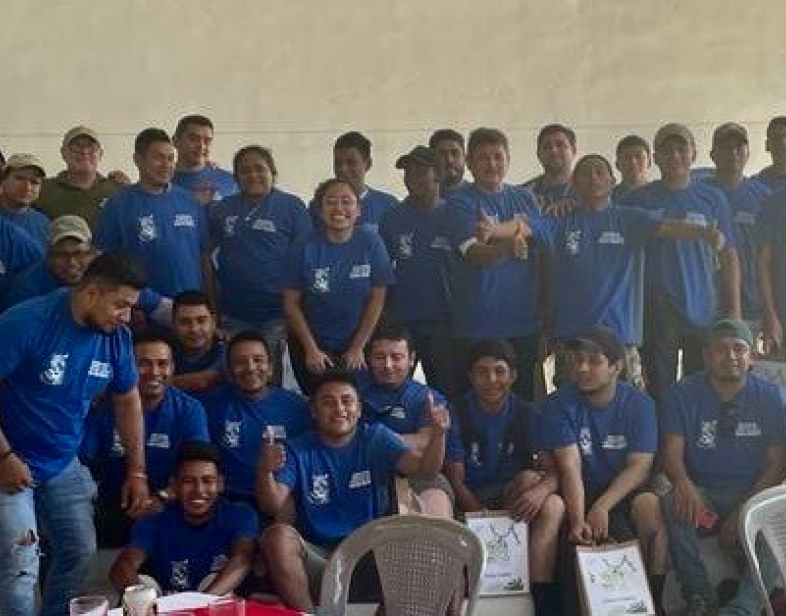An Overview Of Our Solution
The Maya Biosphere Reserve, a protected area between Guatemala and Mexico, is threatened by illegal logging of CITES-listed hardwoods, which are targeted by organized international wildlife trafficking networks. To combat this, FUNDAECO has implemented a holistic conservation and development program that has achieved over 50,000 kilometers of patrols per year, filed over 70 legal complaints, and seized assets from the illegal wildlife mafia valued at over US$1.4 million. In addition to enforcement, the project includes a participative community outreach strategy, environmental education activities, and a "green jobs" program for vulnerable youth. Over the past 5 years, the project has strengthened and coordinated protection efforts, implemented a participatory and inclusive outreach strategy, and created alternative job opportunities.
- Population Impacted: 5,000
- Continent: South America
First name
Last name
Organization type
Email Address
Context Analysis
The project is located in the Maya Biosphere Reserve, an 850,000-hectare protected area that hosts ancient Maya cities and over 2,800 species of flora and fauna, situated on the border between Guatemala and Mexico. However, the reserve is threatened by illegal logging, particularly of CITES-listed hardwoods, such as cedar, and mahogany, which are targeted by organized international wildlife trafficking networks. These networks exploit vulnerable men and youth to conduct the illegal logging and trafficking activities.
In 2018, FUNDAECO's regional Director, Francisco Asturias, led a team of park rangers in an unprecedented effort to combat illegal logging and trafficking in the reserve. This effort, known as the "Genesis Group," involved interinstitutional patrolling and participative community outreach strategies. The group, comprising park rangers from FUNDAECO, the National Council of Protected Areas (CONAP), and the Center for Environmental Studies (CECON), has since patrolled over 50,000 kilometers per year, filed over 70 legal complaints against loggers, and seized sawmills, guns, bikes, and even 4x4 trucks from the illegal wildlife mafia.
A recent assessment conducted by FUNDAECO and WCS revealed that the Genesis Group had seized the illicit extraction of around 200 Granadillo trees, with an estimated value of $1.4 million. In addition to enforcement efforts, the project has also implemented a participative community outreach strategy that includes environmental education activities for both youth and adults. Furthermore, a "green jobs" program has been created for vulnerable youth from Guatemala and Central America.
Through the Genesis Group's efforts, the Maya Biosphere Reserve is being protected, and its natural and cultural heritage is being preserved for Guatemala, Mexico, and Central America.
Video file
Describe the technical solution you wanted the target audience to adopt
The program successfully addresses illegal trafficking of hardwood and precious wood in the Maya Biosphere Reserve by integrating local communities, authorities, and other stakeholders into a comprehensive technical solution. This solution comprises two key components. First, coordinated, continuous, and data-driven protection efforts target local authorities responsible for natural resources and protected area governance. The project facilitates their participation in patrolling efforts and ensures the application of relevant rules and regulations to deter illegal loggers from Guatemala and Mexico. Second, the program promotes participative and engaged communities that benefit from environmental protection by raising awareness about the natural value of local ecosystems, supporting local livelihoods, and creating alternative job opportunities for vulnerable youth. The success of the program lies in the integration of local communities, authorities, and other stakeholders.
Describe your behavioral intervention.
The project employs two key strategies to combat illegal hardwood trafficking and promote conservation in the Mayan Biosphere. Firstly, the project enforces regulations and the rule of law through a large-scale patrolling effort conducted by multiple institutions, including FUNDAECO, CONAP, CECON, PNC, the Guatemalan National Army, Balamku, and PROFEPA. By holding illegal loggers accountable for their actions and promoting behavioral change by cracking down on impunity, the project has been successful in discouraging illegal logging. Secondly, the project engages in continuous environmental education and community outreach activities, targeting surrounding communities in Mexico and Guatemala. By highlighting the benefits of protecting threatened species of cedar and mahogany, and the consequences of illegal logging, the project promotes behavioral change and strengthens trust and collaboration between the organization and local communities. During the COVID-19 pandemic, FUNDAECO provided critical hygiene and food support for communities in the Biosphere. Additionally, the project's "green job" initiative serves as an incentive for vulnerable youth from local communities to view the conservation of trafficked species as a viable job opportunity.
Behavioral Levers Utilized
As needed, please explain how you utilized the lever(s) in more detail.
- Choice architecture: FUNDAECO established cooperation agreements with institutions and promoted shared capacity building activities to make interinstitutional patrolling efforts the default behavior among local authorities.
- Information: Environmental education activities have been conducted to increase awareness and understanding of the importance of protecting illegally trafficked species.
- Material Incentives: Infrastructure (bungalows, bathrooms, kitchen) has been developed for park guards, and the green jobs initiative was established to provide alternative job opportunities for vulnerable youth from logger’s communities.
- Rules & Regulations: the project aimed at promoting the rule of law in the Biosphere by changing the perception around the enforcement of protected area regulatory frameworks; this included changing the "impunity" culture around IWT.
Describe your implementation
Over the past 5 years, the project activities can be summarized in the following three results:
- Result 1: Strengthened and Coordinated Protection Efforts in the Maya and Calkmul Biosphere: Co-designed patrolling plans and the use of SMART reporting tools for data collection, consolidation, and interpretation ensure conservation of over 850,000 hectares of habitat in the Biosphere. Legal procedures are enforced when illegal activities are detected, and when an illegal logger is captured. Continuous capacity building and knowledge exchanges between park guards through "choice architecture" with local authorities and park guards. Obstacles include conflicts with mid-level positions in these institutions and park guards' involvement in other activities.
Result 2: Participatory and Inclusive Outreach Strategy with Local Communities: Environmental education campaign, awareness workshops, and social media campaigns ensure local communities' participation and benefits from the conservation of the Biosphere and the reduction of illegal wildlife trade. Obstacles include the potential rejection of project activities if a prominent community member is caught in illegal logging activities.
Result 3: Alternative Job Opportunities for Local Youth from Vulnerable Communities: FUNDAECO's "green jobs" initiative, implemented with support from UNHCR, provides job opportunities to vulnerable youth, migrants, and refugees from Guatemala and Central America. Obstacles include the primary objective of most beneficiaries to migrate to the United States.
Describe the leadership for your solution. Who is leading the implementation?
The important reduction of illegal wildlife trade in the Maya Biosphere has been achieved thanks to the leadership of FUNDAECO’s program coordinators and the outstanding local park guards who have shown great leadership.
- Francisco Asturias, Petén Regional Director: He is the main leader of the protection and patrolling effort conducted in the Reserve. Thanks to his work, the project has been able to achieve the crucial inter-institutional commitment against illegal logging and poaching in the Biosphere
- Karen Dubois, Gender and Equity Director: She has been the leader of the Green Job initiative implemented with UNHCR. Karen has designed a robust and relevant program that has achieved the inclusion of X youth as park guards in the project.
- The Genesis Group: Comprised of young men from local communities (Gerson, Elvis, Mike, “Pulga”, Renan, and Quinto), all aged between 25 and 35 years old. The Genesis group has been the main leade
Share some of the key partners or stakeholders engaged in your solution development and implementation.
The aforementioned results have been possible thanks to the support and engagement of a diverse network of partners and stakeholders, including:
- Wildlife Conservation Society (WCS): WCS has been a key partner in the implementation of the project. With FUNDAECO, both organizations implemented an Illegal Wildlife Trade (IWT) project with support from UKAID. The partnership between WCS and FUNDAECO is part of a broad effort to ensure a shared understanding of the problems around IWT and effective coordination on IWT mitigation in the Maya Biosphere between local Civil Society Organizations (such as Asociación Balam, Gibor S.A, Environmental Justice Forum of Petén, etc.).
- Guatemalan government bodies and authorities: The project involves the active participation of several local authorities, including the National Council of Protected Areas (CONAP), the Public Ministry (MP), the National Army, the CECON, the National Archaeological Studies Institute (IDAEH), and the National Police (PNC). It is important to highlight that this partnership with authorities was not an easy task to achieve, and it took a nationwide effort from FUNDAECO to advocate for a coordinated patrolling effort in the Maya Biosphere.
- Mexican government bodies and authorities: The project involves the active participation of several local authorities, including the National Commission for Natural Protected Areas (CONANP) and the Secretaría de Medio Ambiente y Recursos Naturales de Campeche (SEMARNAT-CAM). The project relies on these partners to plan and implement binational patrols.
- Mexican NGO partners: Similarly to Guatemalan CSOs, the project involves Mexican organizations to plan patrolling activities, as well as environmental education and community outreach activities. These organizations include ProNatura Yucatán (PPY) and the Centro Mexicano de Derecho Ambiental (CEMDA).
Who adopted the desired behavior(s) and to what degree? Include an explanation of how you measured a change in behavior.
The project’s proposed solutions needed to be adopted by two main stakeholders: communities and authorities. On the one hand, communities needed to shift their perception about two subjects, one related to the potential economic benefits of protecting local wildlife, and one related to the perception that there aren't consequences for illegal wildlife extraction (a fairly common perception in the country due to high levels of impunity). On the other hand, the project aimed to shift the perception among local authorities that patrolling activities are not effective measure for protected area management and protection. The results of the project showcase that the desired behaviors were adopted by target audiences in significant manner, mainly the behavioral change of local authorities, whom have been a crucial in the success of the project. The project does not include direct ways to measure behavior adoption through surveys and interviews with audiences.
How did you impact the environment (biodiversity conservation, ecosystems, etc.)? Please be specific and include measurement methodology where relevant.
- Reduction of standing trees logged: The project has reduced the number of illegal logging measured through the number of illicit activities detected during patrolling activities. Between June and December 2022, the project implemented over 212 patrolling activities in which only 5 illegal logging camps were detected, compared to over 10 in years prior to the pandemic. Similarly, the project reduced from 2-3 illegal routes for the extraction of logged trees prior to the pandemic, to no new routes detected in 2022.
- Monitoring and conservation of flagship species: In collaboration with WCS, the project has benefited the local wildcat population through biological monitoring and conservation actions.
How has your solution impacted equity challenges (including race, ethnicity, social class/income, indigenous communities, or others)?
The above described solutions to reduce illegal wildlife trade have impacted equity challenges in the following manner:
- Promotion of women’s sexual and reproductive human’s rights: The project has integrated FUNDAECO’s Healthy and Empowered Women and Girls program methodologies in community outreach strategies, including gender equality education activities, training for parkguards and local authorities on gender rights and diversity. Similarly, FUNDAECO was able to establish of a Women’s Clinic in Petén to provide general health and family planning services to local women and men.
- Inclusion of vulnerable youth on alternative job programs: As mentioned previously, the project’s “green job” initiative has supported the inclusion of over 20 young women and men in job opportunities in nature conservation and protection. This initiative target youth from disadvantaged and indigenous communities.
What were some social and/or community co-benefits?
- Humanitarian aid during the COVID-19 crisis: Between May to December 2020, the project shifted its prioritized activities to supported local communities from the Maya Biosphere with humanitarian aid (food support, and infection prevention supplies), around 180 families benefited from this support.
- Increased visitation and ecotourism: The improvement in the governance and security of the Reserve has had marginal positive impacts on local ecotourism, on which certain local communities depend.
What were some sustainable development co-benefits?
The project has had the following direct and indirect co-benefits on sustainable development:
- Improved governance of the surrounding areas of community forest concessions: The project has indirectly benefited local community forest concessions (an innovative sustainable development mechanism promoted the Guatemalan Government) by improving the governance of the Biosphere.
- Supported alternative livelihoods investments in communities through the joint project implemented with WCS.
Video file
Sustainability: Describe the economic sustainability of your solution.
Over the past five years the described solution has been financed mainly through grant funding from international donors, and the direct costs of parkguards from public institutions has been covered by the government’s budget. Nevertheless, FUNDAECO is currently developing a sustainable business model for the Petén region, which includes the establishment of an urban ecological park (to generate revenue from entrance and other services), and the development of a large scale restoration project with international Climate Change project developers and investors. FUNDAECO has been successful in establishing region-wide sustainable business model in the Caribbean region of Guatemala.
Return on investment: How much did it cost to implement these activities? How do your results above compare to this investment?
In order to estimate the return on investment we can evaluate the ratio between the yearly costs of the program and the yearly value of IWT products seized. According to historical financial records, the average yearly cost of the program is around US$130,000, including capital, operating and administrative expenses. If we compare this to the value of the seized 200 granadillo trees of US$1.6 million over the past three year, we have an annualized return on investment of around 58% (calculated by ratio of the ending value -1.6 million- over the cost of the project –US$400,000- at the power of 1 over 3 -years of project implementation-, minus one).
How could we successfully replicate this solution in Latin America?
Over the past two years, FUNDAECO has carried-out initial activities to promote the replication of the proposed solution in other part of the country and Latin America, these activities include:
- The implementation of regional knowledge exchanges: Over this period, the project’s leaders have conducted training activities with parkguards from Mexico, Belize, Honduras, Costa Rica, Cuba, Panama and Colombia. An important result of these activities is the creation of the Grupo Jaguares in Panama (a specialized group of parkguards similar to Grupo Genesis), and the creation of a specialized parkguard team in the Corcovado protected area in Costa Rica.
- Follow-up and implementation of the Tikal Declaration: On 2022, FUNDAECO and partners conducted the Tikal Summit, a reunion of conservation stakeholders from Latin America, during the summit, the Tikal Declaration was drafted and signed by all participants. The declaration includes the commitment to replicate successful solutions.
